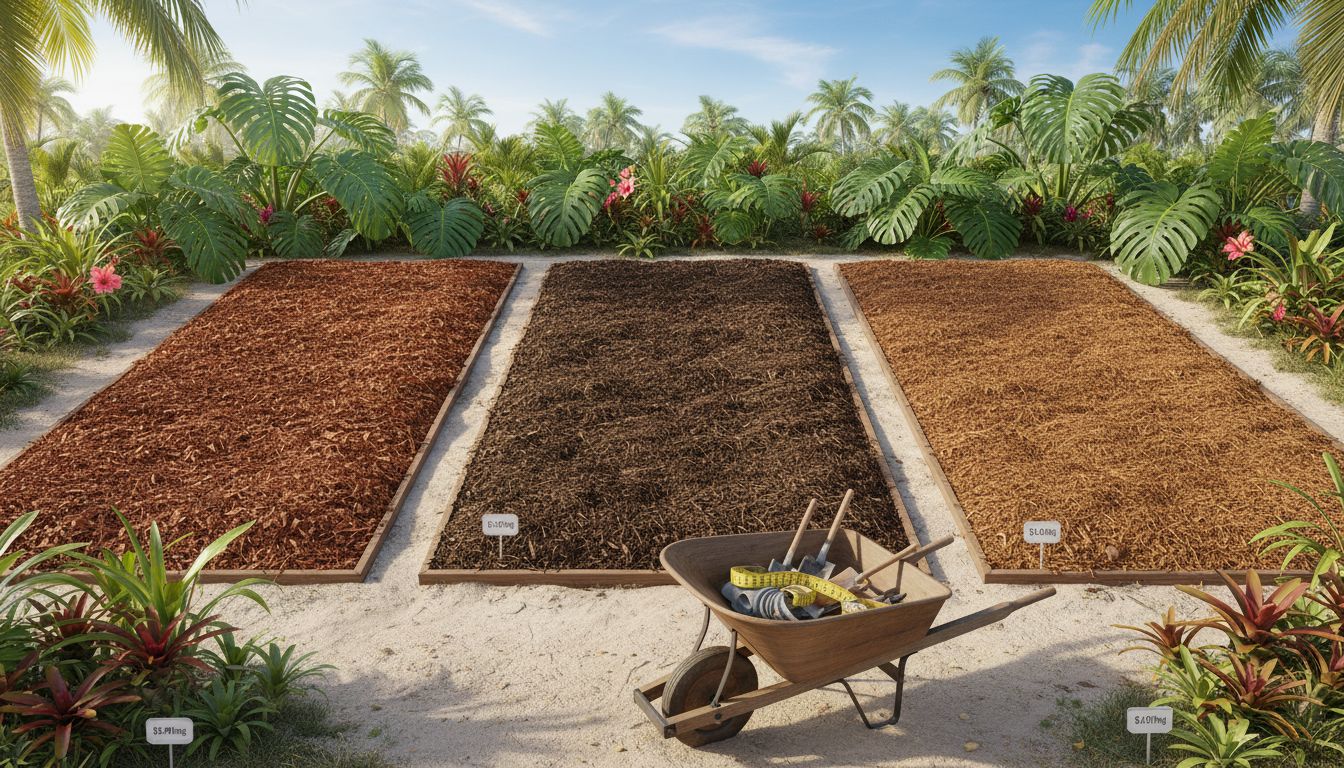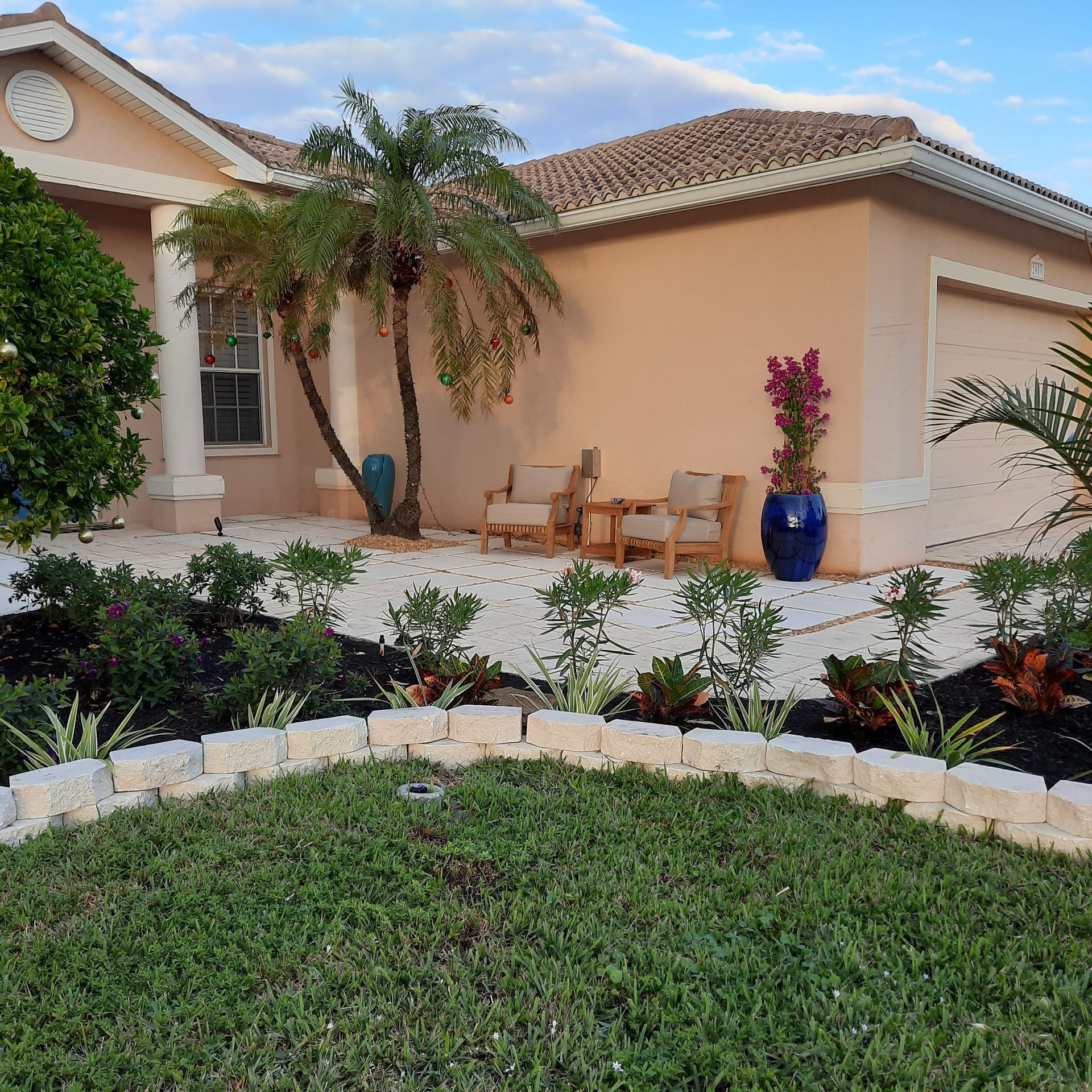Stamped Concrete vs. Pavers: Which is Better for Your Cape Coral Driveway?
Stamped Concrete vs. Pavers: Which is Better for Your Cape Coral Driveway?
Understanding Stamped Concrete and Pavers
Stamped concrete and pavers are two popular choices for driveways, each with its own unique characteristics. Stamped concrete is created by pouring a single slab of concrete and imprinting it with patterns that mimic natural stone, brick, or wood. This method gives homeowners the ability to achieve a high-end look without the need for individual units. On the other hand, pavers consist of individual pieces made from materials like concrete, clay, or natural stone, which are assembled in various patterns to create a cohesive surface. The main difference lies in their form—stamped concrete is a continuous slab, while pavers are modular and flexible.
Because stamped concrete is poured as one piece, it offers a seamless appearance, but this can also make it more prone to cracking over time. Pavers, being individual units, allow for movement and flexibility, making them less likely to crack under pressure or shifting ground conditions. Understanding these fundamental differences is key to deciding which option suits your needs best. With this foundation laid, let’s explore how these materials compare in terms of aesthetics and customization.
Aesthetic Options and Customization
When it comes to design possibilities, both stamped concrete and pavers offer a wide range of options to suit any homeowner’s taste. Stamped concrete can be customized with a variety of colors, textures, and patterns, allowing it to mimic the look of expensive materials like slate, cobblestone, or even hardwood. Homeowners appreciate the versatility of stamped concrete, as it can be tailored to match the architectural style of their home. Meanwhile, pavers come in an array of shapes, sizes, and finishes, enabling intricate designs like herringbone, basketweave, or running bond patterns.
Pavers also provide the advantage of mixing and matching colors and textures within the same project, creating a truly unique driveway. Whether you’re aiming for a traditional, rustic look or something modern and sleek, both materials have the potential to elevate your property’s curb appeal. However, as we move forward, it’s important to consider not just how these materials look, but also how much they cost and what kind of value they bring in the long run.
Cost Comparison: Installation and Long-Term Value
The cost of installing a driveway varies significantly between stamped concrete and pavers. On average, stamped concrete tends to be more budget-friendly upfront, typically costing between $8 and $12 per square foot. This makes it an attractive option for homeowners looking to save on initial expenses. Pavers, on the other hand, usually fall in the range of $15 to $25 per square foot, depending on the material and complexity of the design. While the higher price tag might deter some, pavers often add more value to a property due to their durability and premium appearance.
It’s also worth noting that factors such as project size, labor costs, and material quality can influence the overall expense. Over time, pavers may prove to be a better investment because they require fewer repairs and replacements compared to stamped concrete, which can crack and lose its visual appeal. As we delve deeper into the comparison, it’s essential to weigh these financial considerations against the performance of each material, especially in Cape Coral’s unique climate.
Durability and Performance in Cape Coral’s Climate
Cape Coral’s weather presents specific challenges for driveway materials, including intense heat, humidity, and occasional flooding. Stamped concrete, while durable, can be prone to cracking due to soil movement or heavy loads, especially in areas with unstable ground. Additionally, prolonged exposure to the sun can cause the surface to fade or become brittle over time. In contrast, pavers are designed to handle these conditions more effectively. Their interlocking structure allows them to shift slightly without cracking, making them ideal for regions prone to ground movement or water drainage issues.
Another advantage of pavers is their ability to withstand heavy use without showing significant wear. For instance, if a section of your driveway experiences stress from vehicles or flooding, individual pavers can be replaced without affecting the entire surface. This resilience makes pavers a practical choice for Cape Coral homeowners seeking long-term performance. Now that we’ve explored durability, let’s turn our attention to the maintenance requirements and ease of repairs for both materials.
Maintenance Requirements and Ease of Repairs
Maintaining a driveway is an ongoing responsibility, and the level of effort required differs between stamped concrete and pavers. Stamped concrete requires regular cleaning and sealing every few years to protect its surface and maintain its color. Without proper care, it can develop cracks or discoloration, which may necessitate costly repairs or resurfacing. Repairing stamped concrete can be challenging, as fixing a damaged area often involves professional intervention to ensure the repair blends seamlessly with the rest of the surface.
In contrast, pavers are relatively low-maintenance. Routine sweeping and occasional pressure washing are usually sufficient to keep them looking great. If a paver becomes damaged, it can simply be removed and replaced, saving both time and money. This ease of repair is one of the standout benefits of choosing pavers for your driveway. As we continue, let’s examine how the installation process compares between these two materials.
Installation Time and Process
The installation process for stamped concrete and pavers varies significantly in terms of complexity and duration. Stamped concrete is generally quicker to install since it involves pouring a single slab, imprinting the desired pattern, and allowing it to cure. This process can typically be completed in a matter of days, depending on the size of the project. However, curing times must be factored in, during which the driveway cannot be used, potentially causing inconvenience for homeowners.
Pavers, on the other hand, take longer to install because each unit must be carefully placed and compacted to ensure stability. Despite the extended installation time, pavers offer the advantage of being ready for immediate use once the job is complete. This means no waiting period before you can drive or walk on your new driveway. With installation timelines in mind, let’s now discuss how safety and surface performance factor into your decision.
Safety and Surface Performance
When evaluating safety, both stamped concrete and pavers have distinct advantages and drawbacks. Stamped concrete can be slippery when wet, particularly if it has a smooth finish. Its dark color also absorbs heat, making it uncomfortable to walk on during Cape Coral’s hot summer months. Pavers, however, often feature textured surfaces and grout lines that improve traction and reduce slip hazards. Additionally, lighter-colored pavers tend to stay cooler, providing a more comfortable experience for both pedestrians and vehicles.
Curb Appeal and Home Value Impact
Both stamped concrete and pavers enhance curb appeal, but in different ways. Pavers are often associated with elegance and sophistication, making them a favorite among homeowners who want to maximize their property’s resale value. Their timeless appearance and adaptability to various design styles contribute to their reputation as a premium choice. Stamped concrete, while versatile in design, may not carry the same perceived value as pavers but still offers an affordable way to achieve a high-end look. Ultimately, the impact on home value depends on how well the chosen material complements the overall aesthetic of your property.
Common Issues and Potential Drawbacks
While both materials have their benefits, they also come with potential drawbacks. Stamped concrete is susceptible to cracking, especially in areas with fluctuating temperatures or poor soil conditions. Over time, the surface may also fade or chip, requiring touch-ups or resealing to restore its original appearance. To mitigate these issues, proper preparation of the base and regular maintenance are crucial. Similarly, pavers can encounter problems such as weed growth in the joints or shifting if not installed correctly. Using polymeric sand or sealants can help prevent weeds, while ensuring a stable base minimizes the risk of movement.
Despite these challenges, many homeowners find that the advantages outweigh the disadvantages when the right precautions are taken. By understanding the common issues associated with each material, you can make an informed decision that aligns with your priorities. Next, let’s explore the environmental considerations of using stamped concrete versus pavers.
Environmental and Sustainability Considerations
For eco-conscious homeowners, sustainability plays a role in choosing driveway materials. Pavers are often considered more environmentally friendly because they allow for permeable installations, which promote better water drainage and reduce runoff. Some pavers are even made from recycled materials, further enhancing their green credentials. Stamped concrete, while not inherently permeable, can incorporate additives to improve drainage. However, its solid nature means it doesn’t allow water to pass through as easily, potentially contributing to pooling or erosion in flood-prone areas like Cape Coral.
Which Is Right for Your Cape Coral Driveway?
Choosing between stamped concrete and pavers ultimately comes down to your personal priorities. If budget and design versatility are top concerns, stamped concrete may be the better fit. It offers affordability and a wide range of aesthetic options, making it ideal for those who want a stylish driveway without breaking the bank. However, if you value long-term durability, ease of repair, and increased property value, pavers might be the way to go. Their resilience to Cape Coral’s climate and minimal maintenance requirements make them a practical yet elegant choice.
Before making a final decision, consider consulting with local professionals who understand the unique demands of the region. They can provide valuable insights and help you weigh the pros and cons based on your specific needs. Now, let’s address some frequently asked questions to further clarify the differences between these two materials.
Frequently Asked Questions (FAQ)
Is stamped concrete or pavers better for Florida’s climate?
In Florida’s climate, pavers are often the better choice due to their ability to handle heat, humidity, and occasional flooding. Their flexibility reduces the risk of cracking, and their permeability helps manage water drainage effectively. Stamped concrete, while durable, may struggle with the same conditions over time.
Which is easier to repair: stamped concrete or pavers?
Pavers are significantly easier to repair than stamped concrete. Individual pavers can be lifted and replaced without disturbing the entire surface, whereas repairing stamped concrete often requires professional assistance and can be more labor-intensive.
How long do stamped concrete and pavers last?
With proper maintenance, stamped concrete can last 20-30 years, though it may show signs of wear sooner. Pavers, on the other hand, can endure 50 years or more, thanks to their durability and resistance to cracking. Regular upkeep ensures both materials reach their maximum lifespan.
Will weeds grow between pavers or through stamped concrete?
Weeds are more likely to grow between pavers due to the joints, but this can be prevented with polymeric sand or sealants. Stamped concrete, being a solid surface, is less prone to weed growth unless cracks develop over time.
Can I install stamped concrete or pavers myself?
While DIY installation is possible for both materials, it’s highly recommended to hire professionals. Stamped concrete requires precise timing and technique, while pavers demand careful leveling and compaction. Professional installation ensures a durable and visually appealing result.
Conclusion: Making the Right Choice for Your Cape Coral Home
Deciding between stamped concrete and pavers involves balancing aesthetics, budget, durability, and maintenance. Both materials offer unique advantages: stamped concrete provides affordability and versatility, while pavers deliver unmatched durability and curb appeal. By considering factors like Cape Coral’s climate, your lifestyle, and long-term goals, you can determine which option aligns best with your vision for your home.
To ensure you make the most informed decision, consult with trusted driveway professionals in your area. They can guide you through the selection process and recommend solutions tailored to your needs. Whether you choose stamped concrete or pavers, investing in a quality driveway will enhance your property’s value and provide years of satisfaction. Take the next step today by reaching out to experts who can help bring your dream driveway to life.







